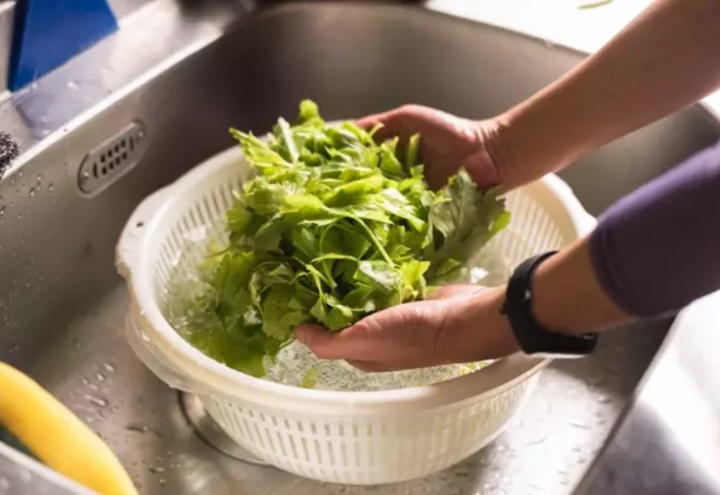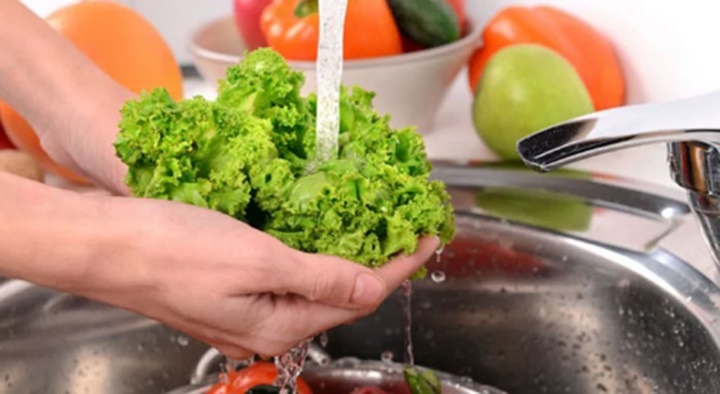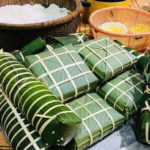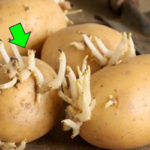Different types of vegetables need to be sliced and cut before cooking; and some people perform this step before washing, believing that it will be more hygienic as the vegetables can get contaminated during the cutting process. In fact, whether to cut vegetables before washing is a subject that many people argue about, so what is the correct way?

Should you cut vegetables before washing them like some people do, or should you wash them first and then cut? (Photo: Alamy Stock Photo)
Should you cut vegetables before washing them?
The answer from nutrition experts is that you should not. The correct way is to wash the vegetables first and then cut them.
If you cut the vegetables before washing them, you will lose a significant amount of vitamins. Cut vegetables, if soaked in water, will experience significant loss of nutritional value. If soaked overnight, the amount of vitamin C will be completely lost. The levels of other substances such as vitamin B or minerals, protein soluble in water also decrease significantly.
According to Healthline, slicing vegetables before washing them increases the surface area of contact between the vegetables and water. This is the reason behind the loss of water-soluble vitamins such as vitamin B, vitamin C, and some minerals, thereby reducing the vegetables’ antioxidant capacity.
Moreover, this incorrect habit also unintentionally allows external contaminants to seep into the vegetables during washing.
Studies have shown that the usual washing process causes a 1% loss of vitamins; however, cutting vegetables before washing them can result in a loss of 14%-23% of their nutritional value.
The correct way to wash vegetables is to rinse them under clean running water or wash them in a clockwise motion to remove impurities, dirt, soil, bacteria, etc. After washing, do not shake the vegetables, do not expose them to sunlight, and cook them immediately because the longer the vegetables are left, the more nutrients they lose, especially vitamin C.
When cooking, add vegetables to boiling water because adding cold water will cause the loss of vitamins as the vegetables soak longer in the pot.
Common mistakes when washing fruits and vegetables
To ensure food safety, eliminate the maximum amount of bacteria and harmful chemicals while preserving the nutrients in fruits and vegetables, you need to avoid the following incorrect washing habits.
Soaking vegetables for too long
Soaking vegetables for a long time does not remove deep-seated chemicals, but it also causes a significant loss of nutrients. Worse, plant preservatives can seep back into the vegetables, posing a danger.
Instead of soaking, you should rinse vegetables under running water until they are completely clean. This is a method that helps remove dirt and pesticide residues, minimizing nutrient loss. For water-grown vegetables that have many parasites clinging to them, this is an effective way to eliminate them.

Rinsing vegetables under running water is a way to remove harmful substances. (Photo: Dailymail)
Soaking vegetables in saltwater
According to Associate Professor Nguyễn Duy Thịnh (former lecturer at the Institute of Biology and Food Technology, Hanoi University of Science and Technology), soaking vegetables in saltwater before cooking or consuming them does not have the effect of killing parasites or removing harmful chemicals.
Saltwater only has an inhibitory or bactericidal effect to a certain extent.
Soaking vegetables in too long or too salty water can cause nutrient loss, make the vegetables lose their texture, and reduce their taste. The vitamin and mineral content in fruits and vegetables soaked in this way will be significantly reduced.
To use saltwater to wash fruits and vegetables, you should dilute it to a concentration of about 5%.
Casual washing
Many people believe that washing vegetables 2-3 times is enough to clean them, and that when cooked, all the bacteria and parasites will be killed. However, to truly “clean” vegetables, the washing method must be much more meticulous. In reality, washing vegetables 2-3 times does not completely remove impurities such as dirt, trash, parasites, or microorganisms, as well as chemical compounds such as pesticides or plant protectants…
According to VTC news
8 Common Mistakes People Make with Cutting Boards
Are you using your cutting board correctly? Many Vietnamese households rely on cutting boards in their kitchen, but not everyone knows how to use them properly, especially when it comes to wooden cutting boards. Check out these 8 mistakes to avoid when using a cutting board to ensure both hygiene and safety for everyone in your family.
Is Refrigerated Leftovers Linked to an Increased Risk of Cancer?
Dr. Lam Van Man, Head of Research, Development and Technology Transfer Department of the Institute of Safety Food, has warned of the risk of food poisoning when reheating leftovers from the refrigerator. But what should we be aware of when it comes to the possibility of these leftovers causing cancer? Here, we explore what the experts have to say on the matter and offer some tips for safe eating.
Preserving Leftover Food from the Tet Holiday
With the beginning of the Lunar New Year, many households are stocking up on food to celebrate the festive occasion. While keeping food in the refrigerator is convenient, it can also be harmful to users if not done correctly. We have compiled a few tips to help ensure food remains fresh and safe to consume during Tet.





































